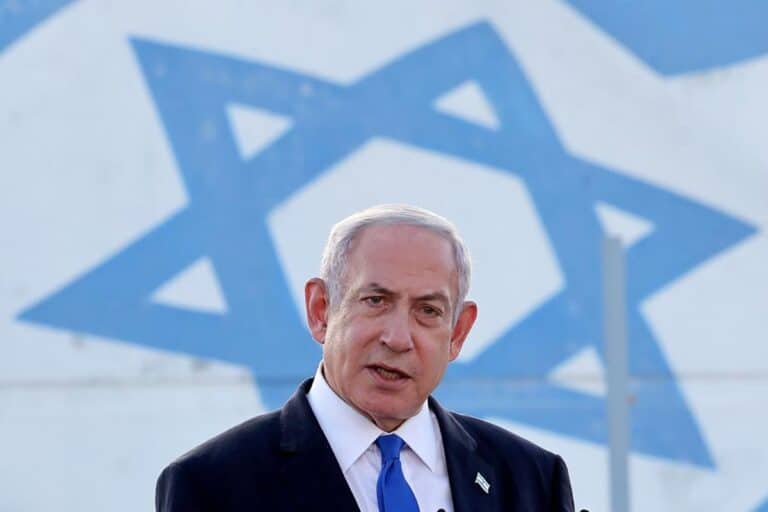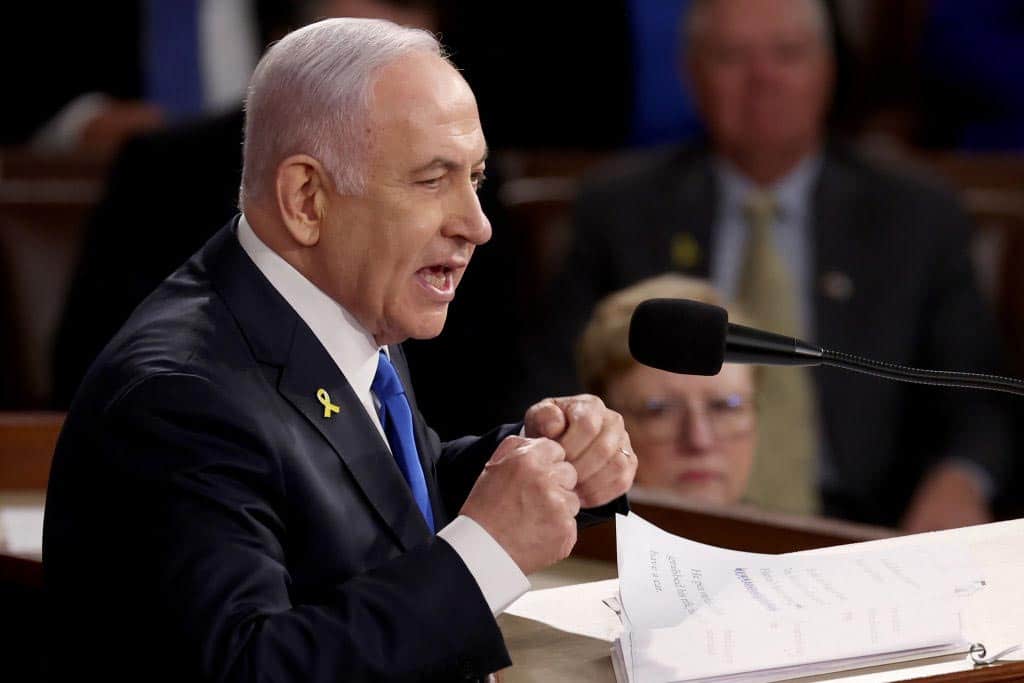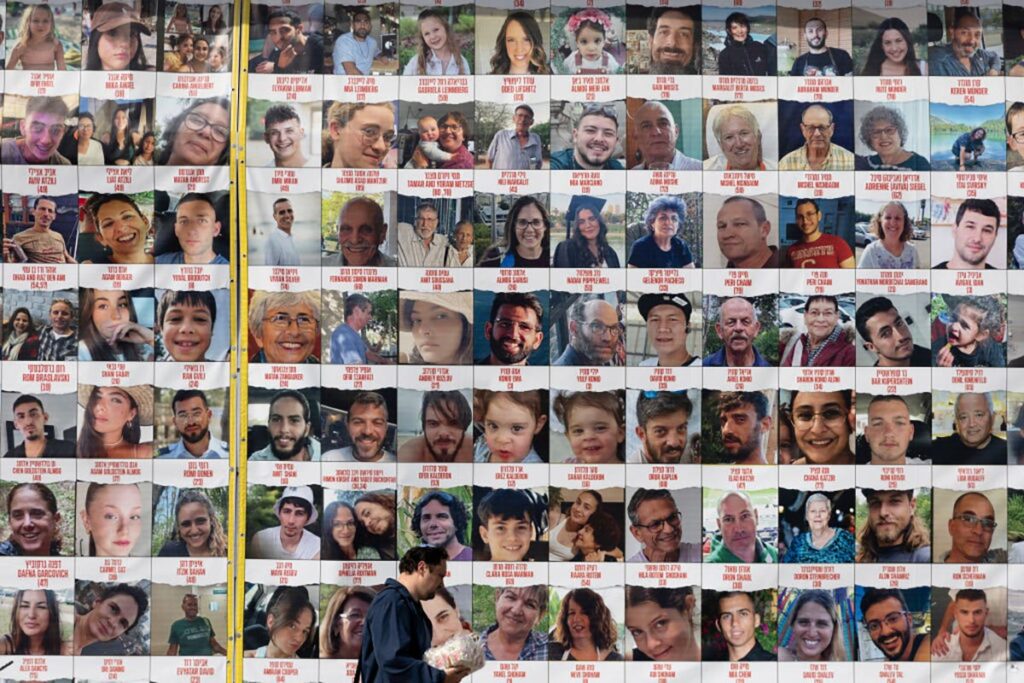
Controversy has erupted around Prime Minister Benjamin Netanyahu after confidential documents were allegedly leaked by employees in his office to foreign media in recent months.
How an official without security clearance got top secret documents
The main suspect in the case is Eli Feldstein, who worked as a spokesperson of sorts in the Prime Minister’s Office (PMO). Several other suspects, including two reserve officers and a non-commissioned officer in the IDF, have been arrested as well.

Feldstein had previously been denied work at the PMO due to his failure to pass a polygraph test required for security clearance. After failing the test, he was hired as an employee working under the PMO’s director general and was often in close contact with Netanyahu.
A non-commissioned officer in reserve service in the IDF is suspected of taking several sensitive documents from the IDF and transferring them to Feldstein back in April. In September, Feldstein, who wasn’t authorized to have classified documents, then took one of the documents and distributed it to foreign media outlets in an attempt to influence public opinion in Israel.
Was a top-secret document leaked to influence public opinion about a hostage deal?
One of the central documents in the case was published by the German newspaper Bild in September. The newspaper reported that the document was attributed to then-Hamas leader Yahya Sinwar.
The document listed tactics purportedly planned by Hamas to increase pressure on Israel in ceasefire negotiations, primarily through psychological warfare targeting the families of hostages to increase public pressure on the government.
![[From left to right] Hersh Goldberg-Polin, Almog Sarusi, Eden Yerushalmi, Alexander Lobanov, Carmel Gat, and Ori Danino: the six hostages murdered by Hamas in Rafah.](https://s2x5p6v6.delivery.rocketcdn.me/wp-content/uploads/hostage-collage-1024x683.jpg)
The document was published shortly after six hostages – Carmel Gat, Eden Yerushalmi, Hersh Goldberg-Polin, Alexander Lobanov, Almog Sarusi, and IDF Master-Sergeant Ori Danino – were murdered by their Hamas captors. This timing raised suspicions that it was leaked in order to raise support for Netanyahu’s argument that it was Hamas, not the Israeli government, refusing a hostage release deal. The prime minister has also argued that weekly protests held by the families of the hostages in Israel demanding a deal serve Hamas’ interests.
Netanyahu referred to the Bild article shortly after its publication, saying it supported his argument. “The German newspaper Bild published an official Hamas document that revealed its action plan: To sow discord among us, to use psychological warfare on the hostages’ families, to apply internal and external political pressure on the Government of Israel, to tear us apart from within, and to continue the war until further notice, until Israel is defeated,” the prime minister said in September.
The IDF later stated that the document published by Bild was not associated with Sinwar, but was instead a recommendation paper drawn up by a mid-level Hamas officer.
Reportedly, Feldstein first contacted several outlets in Israel, but one journalist contacted the military censor who blocked the publication of the document “due to its content and the source of the sensitive information.”

After the censor blocked the publication of the document in Israel, Feldstein decided to leak the document to Bild and even told media outlets in Israel ahead of time that a foreign media outlet would publish the document.
Much of the information about the case is still under gag order, leaving many details unclear.
In a court decision allowing the publication of certain details about the case, it was noted that the leak could have caused serious harm to national security. Israeli media also reported that the publication of the document posed “an ongoing danger” to IDF soldiers and Israeli hostages being held in Gaza. The document also damaged Israel’s intelligence capabilities and exposed sources used by Israeli intelligence.
Israel’s national broadcaster, KAN, reported on Tuesday that Yonatan Urich, a spokesman for Netanyahu, spoke with Feldstein and checked to make sure that he shared the document with Shrulik Einhorn, a campaign adviser close to Netanyahu, who is suspected of facilitating the transfer of the document to Bild.
According to the report, Feldstein also spoke about the document with Netanyahu himself a few days before it was published in Bild.

An attorney representing a reservist suspected of involvement in the case told Israel’s Army Radio that Feldstein had told his client that Netanyahu had asked for more intelligence material.
On Monday, Feldstein was transferred to an observation cell after items of concern were found in his cell.
Netanyahu denies members of his office illegally leaked top secret documents
Netanyahu and the PMO have denied the charges and claimed that Feldstein was not connected with the office.
“The published document didn’t even get to the PMO from the Intelligence Directorate, and the Prime Minister learned about it from the media. The person in question did not take part in security meetings, was not exposed to and did not receive classified information, and did not take part in top secret visits,” the PMO said after details about the case were first published at the beginning of the month.
The PMO also insisted that it was “ridiculous” to claim that the publication of the document “caused any damage to the negotiations for the release of the hostages, or to the security of Israel.”

“On the contrary, the document only helped the effort to return the hostages and certainly did not harm it. The document and the article exposed Hamas’ methods of exerting psychological pressure from home and abroad on the Israeli government and public by blaming Israel for the failure of the talks to release the hostages. This at a time when everyone knows — as has been repeatedly confirmed by senior American officials – because Hamas is the one preventing the deal from being carried out,” the office added.
Last week, Netanyahu asserted that he was being targeted by a “wild and unbridled attack.”
“While the government and the cabinet I lead are working tirelessly to repel our enemies who seek our destruction, working tirelessly to bring about the defeat of our enemies, while I am leading the war and repelling international attacks from various fronts, we are now faced with an even greater challenge from another front — the fake news of the media,” said Netanyahu. “Suddenly, in a timely and orchestrated manner, they are trying to terrorize me and my people, in the midst of a war that I am leading — and are creating scandals out of thin air.”
Hostage families express outrage at suspected leaks
Einav Zangauker, the mother of hostage Matan Zangauker, expressed outrage in response to the leaks, saying, “The Israeli government is conducting a false and cruel awareness campaign against the hostage deal.”
“This is a knife in the back of the people. Netanyahu, you betrayed the hostages; you betrayed us. You deliberately sabotaged the goal of war, and you lost the remnants of the mandate you had to negotiate the hostage deal,” said Zangauker.

Danny Elgert, the brother of hostage Yitzhak Elgert, also condemned Netanyahu for the suspected leaks by the prime minister’s office.
“Netanyahu is conducting operations to torpedo deals with one hand, and with the other hand is avoiding presenting an Israeli initiative for a comprehensive deal,” said Elgert. “He is dragging his feet, and even declaring that he will not agree to end the war. We call on the Shin Bet to exhaust the investigation on suspicion of subversion and deliberate sabotage of the war’s goals. As we have been crying out for months: Netanyahu was and remains the only obstacle to the deal.”
Government ministers condemn the investigation of PMO officials
Members of the government condemned Feldstein’s arrest, with some arguing that the judiciary was treating different leaks with a double standard.
Netanyahu argued that leaks from the security cabinet, hostage negotiations, and other settings were not being investigated with the same urgency as the leak involving Feldstein. Earlier this month, he sent an official request to Attorney-General Gali Baharav-Miara asking her to investigate a series of leaks that took place throughout the war.

Economy Minister Nir Barkat accused law enforcement of “selective enforcement” in the case, saying, “It is absolutely clear that this is an outstanding officer who acted out of the belief that he was doing good for the people of Israel.”
Barkat added that other leaks from the security cabinet weren’t handled in the same way. The minister called for Feldstein to be released.
Diaspora Minister Amichai Shikli also condemned the arrest, saying, “The treatment of Eli Feldstein as someone who sought to harm the security of the state and deny him basic civil rights is a disgrace.”
The right-wing Channel 14 accused the Shin Bet – Israel’s internal security agency – of trying to kill Feldstein, with Yotam Zimri, a journalist at the channel, saying that the Shin Bet “will do everything so that [Feldstein] doesn’t get out of this story alive.”
Hostage release talks have stalled for the past year
Hamas is still holding 101 men, women, and children hostage in Gaza over a year after the war began. At least 34 of the remaining hostages have been confirmed as either killed on Oct. 7 or killed in captivity.
Negotiations aimed at reaching a ceasefire and hostage release deal have fallen through repeatedly over the past year, with Israel and Hamas blaming each other for the failure to reach an agreement.

Hamas has insisted that it will only accept a deal that includes a complete Israeli withdrawal from Gaza and a complete end to the war. Israel has insisted on having some form of security control over Gaza even after the war in order to prevent Hamas from regaining control.
In late October, Egypt proposed a two-day ceasefire during which four Israeli hostages would be released in exchange for some Palestinian prisoners. The offer failed to gain traction.
Earlier this month, Qatar announced that it had suspended mediation efforts between Israel and Hamas after what it said was a lack of seriousness from both Israel and Hamas in the talks.
On Tuesday, Netanyahu announced that Israel would pay $5 million and provide safe passage out of Gaza to anyone who turns over Israeli hostages.
Recently, Turkey also reportedly proposed a new initiative to restart negotiations for a deal. According to the report, Israeli Shin Bet director Ronen Bar secretly visited Turkey to discuss the proposal, but Netanyahu refused to accept Turkey as a mediator after the visit.
Turkey has been especially supportive of Hamas since Oct. 7, restricting trade with Israel and hosting Hamas leaders.
